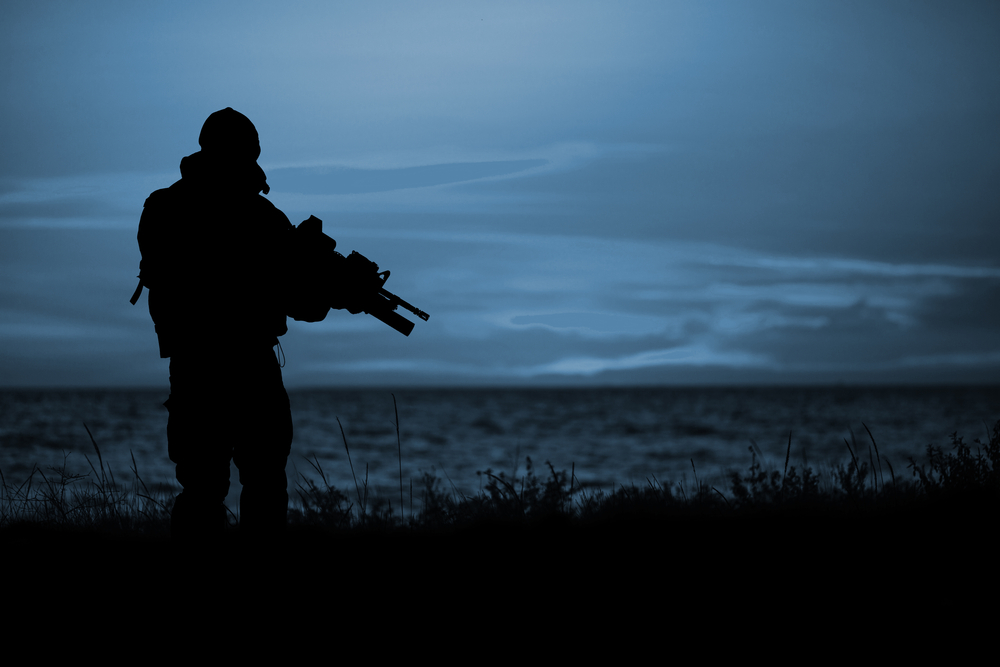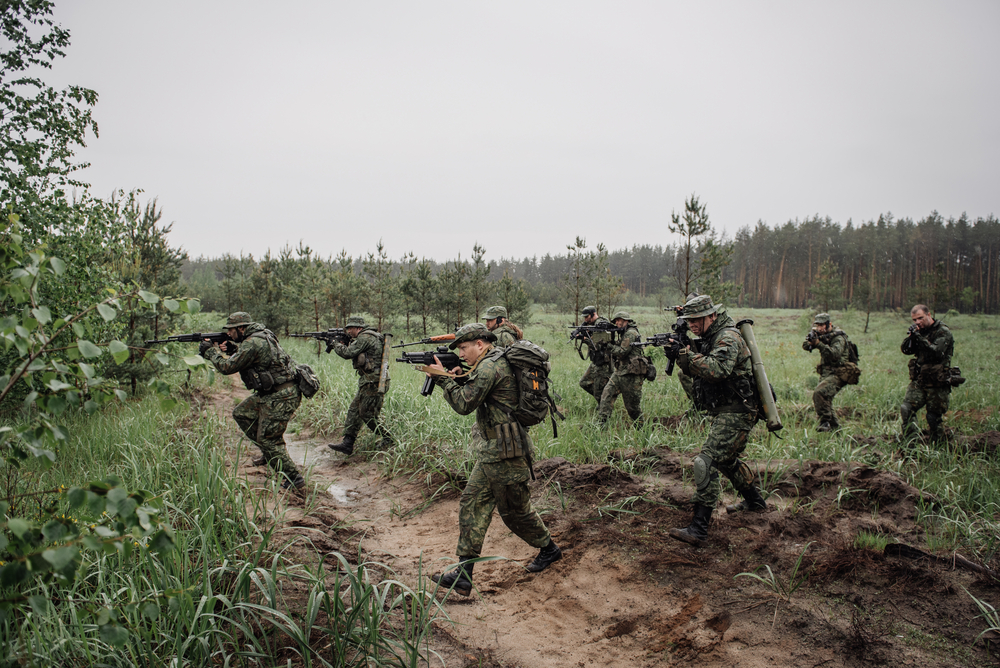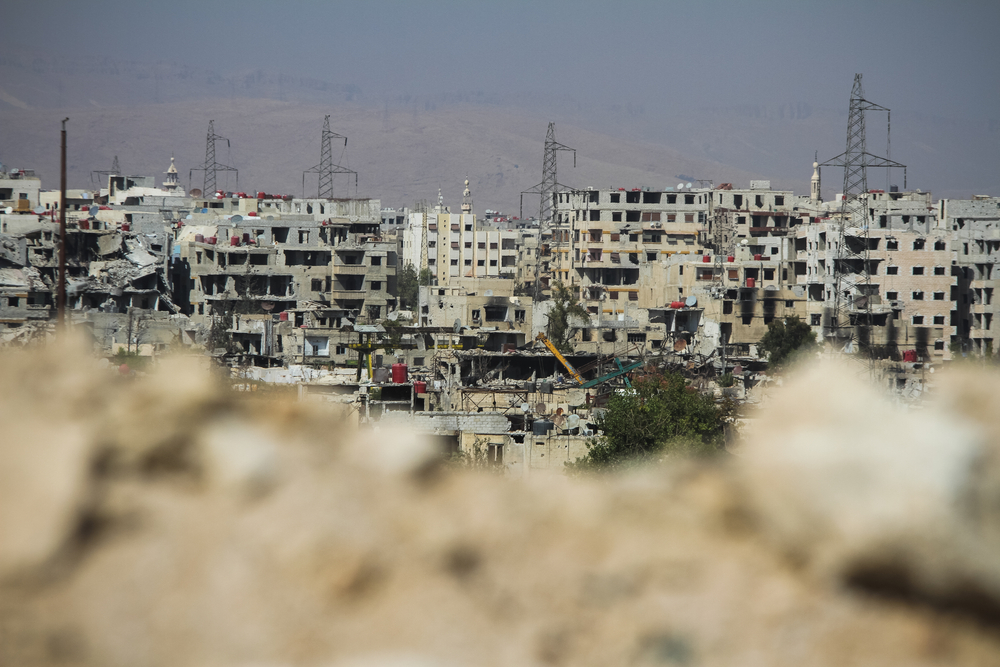The Russian mercenary organization, the Wagner Group, is no longer hiding in the shadows. A recent Washington Post report detailed the acknowledgment and accolades poured upon the Wagner Group by Russian state media for its involvement in the Ukraine War.
As the Russian military was stunned by its slowed and often failed efforts following the invasion of Ukraine earlier this year, the Wagner Group appears to have come to the rescue of Russia’s military objectives and its national pride. In the past, links between the Wagner Group and Vladimir Putin’s government have been denied or suppressed. Officially, that is still the case, but even while formally distancing itself from the Wagner Group, the Russian state media has been highlighting and memorializing the mercenary group in recent months.
What Is the Wagner Group
The Wagner Group is reportedly named after the famed 19th century German right-wing composer Richard Wagner. It was founded and led by Dmitri Utkin, a former Russian special forces officer, a lieutenant colonel in Russia’s foreign intelligence agency, and a veteran of Russia’s Chechen wars. (Utkin’s code name was reportedly “Wagner.”)
Private contractors and Russian oligarchs have utilized the Wagner Group as their private military arm in various global endeavors. These activities included hidden links to the Russian state and international objectives.
-
- Read More: Band of Brothers – The Wagner Group and the Russian State (Center for Strategic and International Studies)
Wagner came to prominence in 2014 and 2015 during the war in Donbas in Ukraine and Russia’s annexation of Crimea. Since then, troops from the Wagner Group have been reported in Mali, Central African Republic, Sudan, Syria, Madagascar, Mozambique, and Libya, to name only a few of its active deployments around the world. So far, the organization has been active in 18 nations on the African continent.
Members and leaders of the Wagner Group have been linked to everything from Neo-Nazis and modern pagan religious movements to white supremacy and far-right political movements. The nature of the organization’s life in the shadows makes verifying any of those allegations difficult. Nevertheless, allegations of human atrocities while enforcing Russian political agendas alongside the business interests of its oligarchs have consistently marked its documented history. The Wagner Group is not an ideology driven organization. It is a ruthless private military arm of the Russian elite.
Before the war in Ukraine, the Wagner Group was active in “black flag operations” intended to offer pretexts for the Russian invasion. Usually, wherever documented evidence of the Wagner Group’s activity is found in the developing world, Russian economic and mineral interests are also present. In the Central African Republic, Wagner Group personnel guarded diamond mines. In Sudan, they guarded gold mines. Wagner activity in Libya has been linked to Russian oil interests. As the French left Mali, the Wagner group took their place, providing security to the national government against Islamic extremist forces in the country.
When the Wagner Group activity is identified, allegations of atrocities usually follow. The US has accused the organization of planting landmines that endanger civilians in Libya. The European Union and the French have raised allegations of rape and robbery against civilians in the Central African Republic. A United Nations reportaccused the Wagner Group of violently harassing and intimidating civilians in the Central African Republic. In June, the Ukrainian government raised allegations of war crimes against the organization.
What Is Different
Russia is not the first modern nation to utilize mercenaries. The US famously utilized Blackwater in Iraq. Turkey’s use of mercenary groups is notorious. Unlike other contemporary examples, however, the Wagner Group appears to be deeply yet secretly intertwined with the Russian state and its elite tier of influence around Vladimir Putin. Officially, it does not exist, but the Wagner Group is achieving inroads for Russian interests worldwide. Their recent move out of the shadows is significant.
Part of that new public display is its open and active recruitment of fighters into the Wagner Group’s private force. Recruiting videos have aired in Russian prisons. Street banners and recruiters for Wagner have been spotted throughout Russia. A recent ad on Russia’s version of Facebook read, “Do you want to spend an unforgettable summer with new friends and get profit? Travel company ‘Wagner Group’ offers tours in Europe, Africa and the Middle East.”






